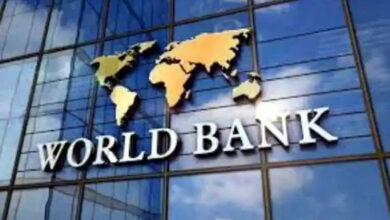SBP Governor Warns of Inflation Rise Next Month, Highlights Progress in Financial Inclusion

KARACHI: Governor of the State Bank of Pakistan (SBP), Jameel Ahmad, has indicated that inflation may rise from next month. Addressing a ceremony during the Pakistan Financial Literacy Week, he also noted that the upcoming IMF loan tranche might be delayed due to ongoing two-week Spring Meetings in Washington.
Speaking at the event, Governor Ahmad emphasized the importance of financial literacy and inclusion, announcing a range of activities during the week to enhance public awareness and empowerment through financial education. He stated that financial literacy is gaining importance globally, with countries making significant investments in this area to strengthen their economies.
Highlighting progress in financial inclusion, he revealed that the number of adult bank account holders in Pakistan has increased from 16% in 2015 to 64%. Under the National Financial Literacy Program, around 3.2 million individuals have been trained, including special training programs for teachers in Balochistan.
He noted the introduction of simplified and digital methods for account opening, along with gender-balanced banking policies. He also praised the contribution of initiatives like “Raast” in expanding access to financial services, while acknowledging that a large segment of the population, especially women, still remains excluded.
The Governor announced the launch of the National Financial Education Roadmap 2025–2029 and expressed the central bank’s commitment to working with the Ministry of Education to integrate financial literacy into the national curriculum. He encouraged all stakeholders—including media, educational institutions, and businesses—to participate in this mission by promoting financial wellness programs for employees.
Ahmad shared that the financial inclusion rate is targeted to reach 75% by 2028, while the gender gap in access to financial services is expected to narrow from 34% to 25%. He reiterated the SBP’s forecast of 3% GDP growth for the current fiscal year, attributing slower growth to underperformance in the agriculture sector. Had agriculture growth matched last year’s figures, GDP growth could have reached 4.2%, he added.
Discussing remittances, the SBP chief credited overseas Pakistani workers for $4.1 billion in recent inflows. He also noted that foreign exchange reforms have helped shift remittances from informal to legal channels. The current account is expected to remain in surplus this year, with remittances projected at $38 billion. Monthly non-oil imports have increased to $3.8 billion, and foreign reserves are estimated to reach $14 billion by the end of the fiscal year.
Regarding the impact of U.S. tariffs, Ahmad downplayed their effect, suggesting only a minor hit to textile exports. He also mentioned that declining oil prices would benefit Pakistan’s economy and that overall, the impact of U.S. tariffs on the country would be limited.





